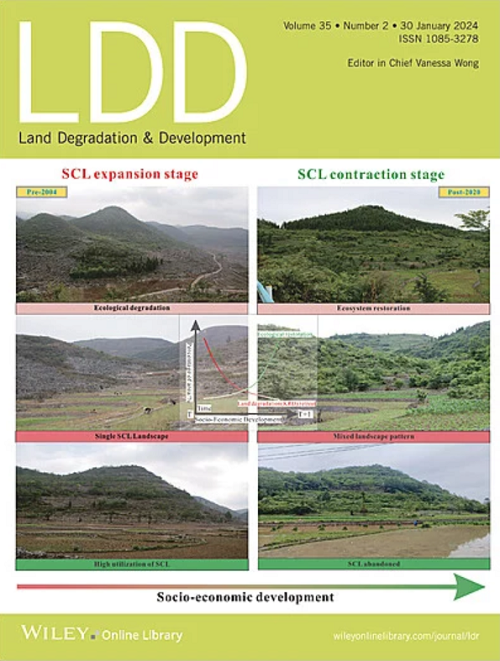Community and Institutional Drivers of Deforestation, Environmental Impacts, and Extension Interventions for Forest Management in the Hindu Kush Himalaya
IF 3.6
2区 农林科学
Q2 ENVIRONMENTAL SCIENCES
引用次数: 0
Abstract
Deforestation in Pakistan's mountainous regions, particularly in the Hindu Kush Himalaya (HKH), presents significant environmental, social, and economic challenges. Despite various control measures, deforestation persists due to institutional weaknesses and community pressures. This paper explores the institutional and community drivers of deforestation, its environmental impacts, and extension interventions. Focus group discussions (FGDs) with community members from 10 HKH villages provided diverse perspectives. Findings revealed that deforestation results from institutional failures, such as ineffective enforcement of regulations, deficient extension services, and corruption, along with community factors like elite capture, political patronage of offenders, dependence on livestock, communal forest distribution, and limited job opportunities for youth. This has led to ecological deterioration, including climate change, water scarcity, and heightened flood risks. Despite the inadequacy of the extension system, it plays a vital role in promoting sustainable forest management by overcoming resistance to restoration programs and encouraging community participation and decision‐making. Policy recommendations focus on strengthening extension services for effective forest management and conservation, particularly by providing extension agents with necessary physical resources, such as staff, vehicles, and office facilities, along with training to enhance their operational capacity.求助全文
约1分钟内获得全文
求助全文
来源期刊

Land Degradation & Development
农林科学-环境科学
CiteScore
7.70
自引率
8.50%
发文量
379
审稿时长
5.5 months
期刊介绍:
Land Degradation & Development is an international journal which seeks to promote rational study of the recognition, monitoring, control and rehabilitation of degradation in terrestrial environments. The journal focuses on:
- what land degradation is;
- what causes land degradation;
- the impacts of land degradation
- the scale of land degradation;
- the history, current status or future trends of land degradation;
- avoidance, mitigation and control of land degradation;
- remedial actions to rehabilitate or restore degraded land;
- sustainable land management.
 求助内容:
求助内容: 应助结果提醒方式:
应助结果提醒方式:


